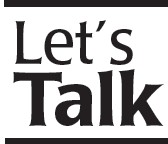The Community Support Program at the Human Development Center provides rehabilitative mental health services. We provide both adult rehabilitative mental health services (ARMHS) and children’s therapeutic support services (CTSS). We believe that recovery from mental illness is a personal journey of healing to attain satisfaction in life, work, home, and close relationships.
Adult rehabilitative mental health services and our outreach services are provided to adult recipients/ individuals who have a mental illness and functional barriers that impact their abilities to a degree that rehabilitative services are necessary to restore functioning. In addition to two fulltime, licensed therapists, the Human Development Center has three mental health practitioners who provide services to adults and children through our community support program.
The role of the mental health rehabilitative practitioner is to provide rehabilitative/ skill building mental health services as identified in the treatment planning process with the individual and often with other providers working with the individual such as a social worker, therapist, or physician.
We frequently serve individuals who have been diagnosed with depression, anxiety, post traumatic stress disorder, bipolar, and schizophrenia. The practitioner’s role is to be knowledgeable about the individual’s mental illness including the symptoms and medications they may take for managing their illness. The provider teaches coping skills for symptom management and works with the individuals to help them identify barriers they are having in attaining life goals. We work with people in their home, community, and in an office setting.
Our practitioners have, and continue to develop, professional expertise in knowledge about mental illness, the principles of its treatment, and strategies for helping the individual deal with stress, cope with symptoms, and pursue their life goals.
Recovery is a journey. Recovery goals differ with each person. For some it might mean they are able to get out of bed and have meaningful activities to participate in each day. Another individual might want to obtain GED or pursue higher education. Providers must portray hope and optimism in order to convey these beliefs to the individuals they are working with. Recipients often report that having someone believe in them is an empowering and validating experience. It is vital that we retain the attitude of hope, optimism, and empowerment.
If you believe you could benefit from mental health services and/or would like additional information, please contact the Human Development Center at 218-387-9444. We are available to answer your questions.
Each month a mental health therapist will discuss an area of mental health. This week’s column comes from the Human Development Center.



Loading Comments